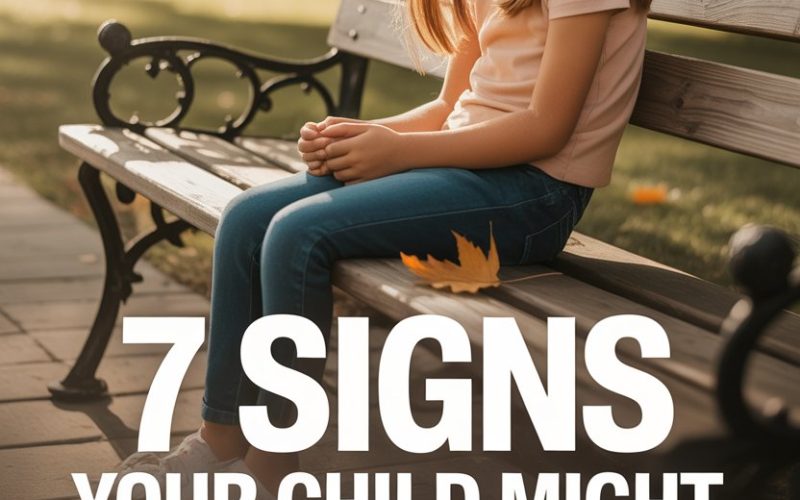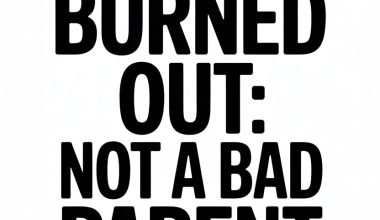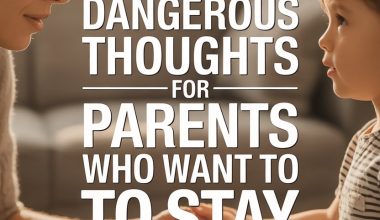So your child missed out on the last cookie and now the family is apparently plotting against them. Sound familiar?
Kids are naturally dramatic (Shakespeare would be jealous), but sometimes the “woe is me” script starts looping a bit too often.
While a few crocodile tears here and there are part of growing up, a routine pattern of feeling wronged can hint at something deeper—a budding victim mentality.
Spotting these signs early can help you nip them in the bud, so your child grows up resilient, not resentful.
1. Blaming Others for Everything
The shoes are lost, the science project got “destroyed” by the cat, the sun was too bright this morning—someone, somewhere, is always to blame.
Kids with a victim mentality often have an uncanny knack for sidestepping personal responsibility.
If your child rarely (or never) admits their role in a mishap, and their go-to move is pointing the finger, that’s a red flag.
Sure, siblings sometimes do swipe each other’s stuff, but if your child never accepts their own part—even when it’s obvious—they may be stuck seeing the world through “it’s-not-my-fault” glasses.
What helps? Begin with gentle questions: “What could you have done differently?” or “How did you feel when that happened?”
Encourage your child to own up to mistakes, and model this yourself—yes, even when you burn the toast again.
According to child psychologist Dr. Laura Markham, accountability starts with feeling safe enough to admit errors.
Your willingness to say “Oops, my bad!” teaches them that mistakes aren’t disasters—they’re learning moments.
2. Exaggerating Minor Injustices
The toast wasn’t cut evenly? This is the stuff of Greek tragedy.
Children prone to victim thinking often inflate small slights into towering injustices.
If your child acts as if every tiny inconvenience—or ordinary consequence—is a major attack on their personhood, watch out. You may hear, “You always pick on me!” or “No one ever listens to me!” after you ask them to tidy up.
Try not to roll your eyes (at least, not where they can see you). Instead, acknowledge their emotions, but gently ground them: “That does feel unfair. At the same time, we all get asked to help. Not just you.”
Show them how to spot the difference between real unfairness and everyday stuff everyone deals with.
Teaching kids to put things in perspective is vital.
A handy trick: Ask them to rate how big the problem really is, from “stubbed my toe” to “lost my pet dinosaur.” Turns out, much of life lands somewhere in the middle.
3. Refusing to Try for Fear of Failure
“Why bother? I’ll just mess it up.”
When your child avoids new challenges, sports, or even games with friends because they’re convinced disaster is looming, it’s more than nerves.
A child entrenched in a victim mindset often expects things to go wrong, so they stop trying altogether.
This can morph into learned helplessness—a psychological pattern where children feel powerless to change outcomes, no matter their effort (read more at Verywell Mind). It’s tough to watch, but there’s hope.
Reframe mistakes as heroic attempts. Share stories from your own life about embarrassing failures—bonus points for extra cringe.
Celebrate effort, not just results: “You gave it a go! That’s the win.” And if your child’s inner critic sounds extra loud, gently point out times when they succeeded by sticking with something, even if progress was slow.
4. Constant Negative Self-Talk
“I can’t do anything right.” “Nobody likes me.” “I’m always the unlucky one.”
A little self-pity now and then is normal, especially after a rough day. But when your child’s inner dialogue starts sounding like the universe has a personal vendetta, they may be stuck in a victim rut.
Listen for repetitive, sweeping statements—these are often the breadcrumbs of a fixed mindset.
Dr. Carol Dweck’s research on growth mindset shows that children who believe abilities can grow with effort (rather than staying fixed) are far more resilient and optimistic.
Challenge negative self-talk with gentle humor and a reality check: “Always unlucky? You found that tenner in your pocket last week!”
Teach them to notice negative thoughts and swap them for something more balanced: “I had a hard day, but that doesn’t mean every day will be the same.”
5. Difficulty Accepting Apologies or Forgiving
Some kids hold onto grudges like they’re Olympic events.
If your child refuses to accept apologies, insists on endless retribution for tiny slights, or resurrects old grievances at the dinner table, they might be stuck seeing themselves as perpetual victims.
Forgiveness isn’t just about letting someone off the hook—it’s about moving forward. Children with a victim mentality often struggle to believe others can change, or that relationships can heal.
Family rituals can help. Try a “forgiveness jar” where everyone gets to put a note in whenever they want to let go of a grudge (don’t be surprised if you end up writing about your partner leaving shoes everywhere).
Encourage empathy by role-playing: “How would you feel if someone apologized to you?” Over time, this can soften the fortress and help your child reconnect.
6. Seeking Constant Sympathy or Validation
Some kids can turn a stubbed toe into a week-long saga.
If your child seems to crave sympathy for every minor setback, or regularly exaggerates their woes for attention, they may be developing a habit of seeking validation through victimhood.
It’s natural to want comfort—who doesn’t love a well-timed cuddle or a bowl of ice cream after a rubbish day? But if your child relies on external pity to feel okay, this can feed the cycle.
Try this: Offer comfort when it’s needed, but don’t make a meal out of every scraped knee. Encourage problem-solving and resilience: “That sounds tough. What could make it better?”
Sometimes, a “That really stinks. Now, what’s next?” is enough to show you care, without reinforcing the melodrama.
7. Struggling to See Other Perspectives
Empathy is a skill—it needs regular workouts, like any muscle.
Children with a budding victim mentality often see themselves as the only wronged party, unable (or unwilling) to recognise how their actions affect others.
They might struggle to notice when they’ve hurt someone’s feelings, or dismiss siblings’ complaints as less important.
Boosting perspective-taking is key. Try “switcheroo” conversations: “How do you think your mate felt when you took their toy?”
Read books together that highlight different points of view, or watch films where the ‘bad guy’ isn’t so clear-cut. Celebrate moments when your child shows empathy—they’re little rays of hope in the storm.
Growing Resilience, Not Resentment
No one wants their child to walk through life with a chip on their shoulder (or, worse, a full sack of potatoes). While a bit of drama is part of being a kid, a persistent victim mentality can sap confidence and strain friendships.
When you spot the signs, respond with heaps of patience, plenty of humour, and consistent boundaries. Shift the focus from blame to problem-solving, from sympathy-seeking to self-reflection.
Keep the conversations open, model accountability, and never underestimate the power of a silly story to turn a grumpy mood around.
And if you ever catch yourself muttering, “Why me?” at the sight of another spilled juice box—don’t worry. You’re not alone.




